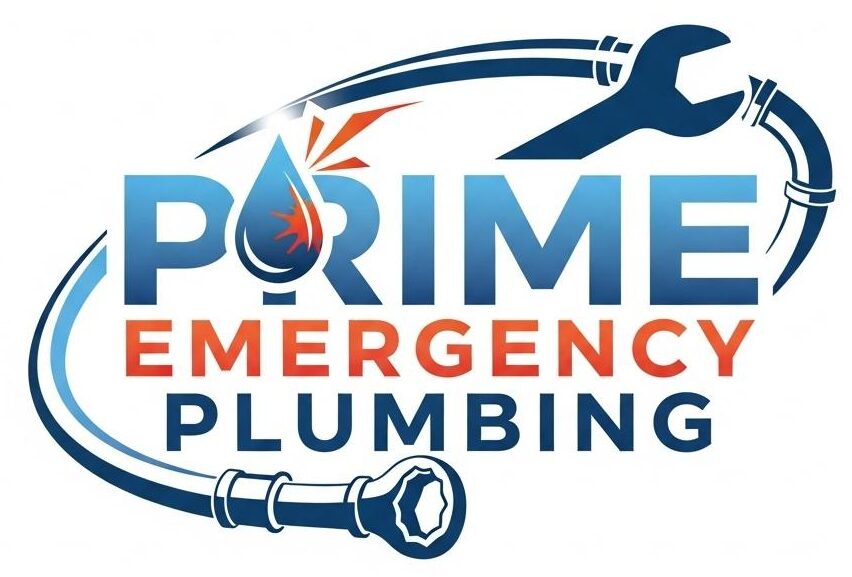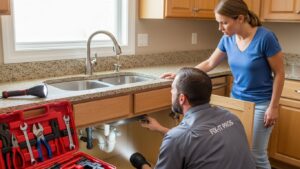Introduction: Why Emergency Plumbers Are Always in Demand
If you’ve ever faced a burst pipe at midnight, you understand how crucial emergency plumbers are. These professionals handle urgent plumbing issues that can’t wait until morning — leaks, floods, and broken water heaters. With increasing urban development and aging infrastructure, the demand for emergency plumbers continues to rise globally.
Whether you’re new to the trade or looking to switch careers, learning how to get emergency plumber job can open doors to stable income, flexible hours, and career growth. Let’s break down everything you need to know to land your first job and thrive in this essential field.
Understanding the Role of an Emergency Plumber
What Does an Emergency Plumber Do?
Emergency plumbers respond to urgent calls from residential, commercial, and industrial clients. Their responsibilities often include:
- Fixing burst pipes, leaks, and clogged drains.
- Repairing water heaters and boilers.
- Handling sewage backups and water damage control.
- Providing on-call services 24/7.
This role requires technical expertise, quick decision-making, and excellent communication skills.
Key Skills and Responsibilities
To succeed as an emergency plumber, you’ll need a strong mix of hard and soft skills, including:
- Problem-solving under pressure.
- Understanding plumbing codes and safety regulations.
- Customer service and time management.
- Willingness to work nights, weekends, and holidays.
Step 1: Get the Right Plumbing Education and Training
Plumbing Trade Schools and Apprenticeships
Start by enrolling in a plumbing trade school or apprenticeship program. These programs combine classroom theory with hands-on training. Apprenticeships typically last 4–5 years, allowing you to earn while you learn under licensed professionals.
Certifications and Licenses You’ll Need
Most states require plumbers to hold a license. Depending on your region, you may need certifications like:
- Journeyman Plumber License
- Master Plumber License
- EPA 608 Certification (for HVAC and refrigerant work)
Make sure to check local plumbing boards or government websites for updated licensing rules.
Step 2: Gain Real-World Experience Before Applying
Working Under Licensed Professionals
Before applying for emergency roles, gain field experience working under a master plumber. This helps you develop confidence and familiarity with real-world plumbing emergencies.
Developing Hands-On Technical Skills
Practice fixing common emergency issues — burst pipes, leaks, and water heater failures. Employers value candidates who can troubleshoot quickly and safely.
Step 3: Build a Professional Resume and Portfolio
Highlighting Certifications and Emergency Experience
Create a resume that emphasizes your licenses, training, and any 24/7 plumbing experience. Use bullet points to showcase your skills in diagnostics, repair, and safety compliance.
Including Customer Service Skills and Availability
Emergency plumbing often involves direct client interaction. Highlight your ability to communicate clearly, remain calm under pressure, and respond promptly to service calls.
Step 4: Where to Find Emergency Plumber Jobs
Online Job Boards and Trade Platforms
Search for openings on platforms like Indeed, ZipRecruiter, and Angi. Use keywords like “emergency plumber,” “on-call plumber,” or “24-hour plumbing technician.”
Networking with Local Plumbing Companies
Don’t underestimate word-of-mouth. Many plumbing jobs are filled through referrals and local connections. Join community groups or trade unions to expand your reach.
Step 5: Applying for the Right Type of Emergency Plumbing Roles
Full-Time vs. On-Call Positions
You can work full-time for an established company or take on-call contractor roles. Each option offers unique benefits — full-time roles provide stability, while on-call work allows flexibility.
How to Negotiate Salary and Hours
Discuss pay rates based on your certifications and shift availability. Emergency plumbers often earn premium pay for late-night or weekend calls.
Step 6: Preparing for the Interview
Common Interview Questions for Emergency Plumbers
Expect questions like:
- “Describe how you’d handle a burst pipe at 2 a.m.”
- “What safety measures do you follow during emergencies?”
- “How do you prioritize multiple service calls?”
How to Demonstrate Reliability and Fast Response Skills
Share real-life examples of your quick problem-solving abilities and commitment to customer satisfaction.
Step 7: Continuing Education and Upskilling
Staying Updated with Plumbing Codes and Safety Standards
The plumbing industry constantly evolves with new safety codes, equipment, and best practices. To stay competitive, it’s essential to keep learning. Regularly attend workshops, read plumbing manuals, and review local building codes. Most states update their plumbing regulations every few years, so staying informed ensures you work legally and efficiently.
You can also take online safety courses through organizations like the Plumbing-Heating-Cooling Contractors Association (PHCC) or National Inspection Testing and Certification (NITC). These certifications help you stay compliant and respected within the trade.
Taking Advanced Repair or HVAC Courses
Adding HVAC repair or pipe welding skills to your portfolio can make you more valuable. Many employers prefer plumbers who can handle both heating and water systems. Consider taking short-term HVAC, gas fitting, or advanced drain-cleaning courses. Continuous learning not only boosts your job prospects but also increases your potential earnings.
Step 8: Building a Personal Brand as a Trusted Emergency Plumber
Creating a Website or LinkedIn Profile
In today’s digital age, having an online presence can make a huge difference. Create a simple website showcasing your services, certifications, and emergency response availability. Use SEO-friendly terms like “24-hour plumber near me” or “licensed emergency plumber.”
A professional LinkedIn profile can also help you connect with employers, contractors, and clients. Share photos of your work, testimonials, and certifications to enhance credibility.
Getting Customer Reviews and Testimonials
Word-of-mouth remains one of the most powerful tools in the plumbing industry. After completing each job, kindly ask clients to leave a review on Google or Yelp. Positive testimonials can significantly increase your chances of landing more work and even full-time positions.
Step 9: Joining Professional Plumbing Associations
Benefits of Being a Certified Member
Joining professional organizations like the American Society of Plumbing Engineers (ASPE) or PHCC provides credibility and career opportunities. Members often get access to specialized training, job boards, and discounts on tools and insurance.
Being part of a reputable association also makes you stand out to potential employers who value professionalism and commitment to the trade.
Networking Opportunities and Job Referrals
Associations often host industry events where you can meet other plumbers, business owners, and suppliers. Networking at these events can lead to exclusive job referrals or apprenticeship offers. Many companies prefer hiring from within trusted circles, so these connections can be a game-changer.
Step 10: Starting Your Own Emergency Plumbing Business
Steps to Get Licensed and Insured
Once you’ve gained enough experience, consider starting your own emergency plumbing service. You’ll need a business license, plumbing contractor license, and liability insurance. Check your state’s contractor board website for specific requirements.
Register your business name, get an Employer Identification Number (EIN), and open a business bank account. Proper documentation protects both you and your clients.
Building a 24/7 Response Team
To handle emergencies efficiently, you’ll need reliable team members. Start by hiring one or two apprentices or experienced plumbers to rotate shifts. Use scheduling software like Housecall Pro or Jobber to manage calls, invoices, and dispatches efficiently.
Offering 24/7 service can significantly increase your earning potential, especially if you operate in areas with limited competition.
Step 11: Common Mistakes to Avoid When Seeking Plumbing Jobs
Overlooking Licensing Requirements
Many aspiring plumbers apply for jobs before completing their licensing or certification requirements. This can delay your career progress or result in legal issues. Always make sure your credentials are up to date before applying.
Ignoring Soft Skills and Customer Communication
Technical expertise is vital, but so is your attitude. Clients in emergencies often feel stressed — your ability to communicate calmly and clearly can set you apart from others. Employers look for plumbers who not only fix problems but also reassure clients during crises.
FAQs About How to Get Emergency Plumber Job
How long does it take to become an emergency plumber?
Typically, it takes 4–5 years through an apprenticeship or trade school program. Some regions allow you to become a journeyman sooner with accelerated training.
Do I need a license to work as an emergency plumber?
Yes. Most states require plumbers to hold a Journeyman or Master Plumber license. Always check local regulations before starting work.
What’s the average salary of an emergency plumber?
Emergency plumbers often earn between $55,000 and $85,000 per year, depending on experience and shift availability. Those who handle night and weekend calls may earn higher hourly rates.
Can I work part-time as an emergency plumber?
Absolutely. Many plumbers choose part-time or on-call work for flexibility. This setup is ideal if you want extra income without a full-time commitment.
How do I stand out when applying for plumbing jobs?
Highlight your emergency response experience, certifications, and customer service skills. Also, mention your availability for nights and weekends — that’s a huge plus for employers.
What tools should I have as an emergency plumber?
Essential tools include a pipe wrench, plunger, drain snake, leak detector, and adjustable spanner. Investing in quality tools shows professionalism and preparedness.
Conclusion: Turning Your Plumbing Skills Into a Reliable Career Path
Becoming an emergency plumber is more than just fixing leaks and clearing drains — it’s about providing critical help when people need it most. By earning the right certifications, gaining experience, and building your reputation, you can secure a rewarding career that offers both financial stability and personal satisfaction.
Whether you’re just starting out or looking to advance, knowing how to get emergency plumber job gives you a clear roadmap to success. With dedication, ongoing learning, and excellent service, you can become a trusted professional in one of the most in-demand trades today.




